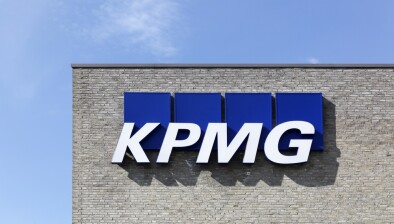KPMG: Venture capital investment dips across Scotland

Amy Burnett
The volume of venture capital (VC) invested into Scotland’s start-ups has dropped significantly in the second quarter of 2023 as the deals market continues to experience a slowdown, according to KPMG’s latest Venture Pulse report.
During the second quarter of the year, 28 deals totalling £63m took place, marking an 80% drop compared with the same period last year when £325 was invested across 45 deals.
The total for the first half of 2023 now stands at £133m – significantly down on H1 totals for 2021 (£332m) and 2022 (£506m), when the market was extraordinarily busy following the pandemic.
Standout deals in Scotland during the quarter include Manus Neurodynamica, which develops and markets products and technologies for neuromotor assessment. The company closed a £2.6 million funding round to support the commercialisation of its NeuroMotor Pen – a medical device to aid diagnosis and monitoring of neuromotor disorders including Parkinson’s disease.
The quarter’s largest VC investment went to Glasgow based Chemistry pioneer Chemify which secured £16m in later stage funding to develop its technology to make complex molecules on demand.
Graeme Williams, head of corporate finance M&A for Scotland at KPMG UK, said: “There’s been a visible slowdown in venture capital fundraising globally, and Scotland is no different. After two years of exceptional activity, the market has reached a more stable point. However, there is a noticeable sense of caution prevailing, with VC investors more wary about committing to bigger deals. The smaller investments in seed, angel, and series A stages are holding steady.
“Looking ahead, it’s likely that venture capital investment will maintain its stability in the third quarter of 2023. Despite ample funds, well known challenges including geopolitical complexities, and the potential for further interest rate rises will persistently influence the volume of deals taking place.”
Amy Burnett, head of KPMG Private Enterprise Access at KPMG UK, said: “Despite the slightly downbeat figures for Q2, we continue to see promising businesses in Scotland secure investment and attention both home and abroad. This is especially true in the tech and MedTech sectors, where we’re seeing robust growth. Investment in AI and generative AI remain one of the few resilient areas of investment in the current market. As is always the case, those with a proven product, market fit, strong customer data, and clear paths to profitability will continue to gain attention from seed and series A investors.”
VC investment into the UK remained stable in Q2 23, as investment levels stabilised following exceptional years in 2021 and early 2022.
During April – June 2023, £3.2 billion was invested in UK businesses, with 551 deals completed during that period. Whilst investment was down £0.39 billion on the opening quarter (£3.62 billion), the number of deals completed fell by 23% from 715 in Q1 23, as investor caution remains over the growing cost of living crisis and rising interest rates impacting the UK economy.
More than half of the VC investment made into the UK during Q2 23 flowed into the capital, with £2.2 billion raised by London based businesses across 288 completed deals during the period. Standout deals included the £129 million Series E funding round for Quantexa and £105 million raise for Ascend Gene & Cell Therapies for its gene therapy manufacturing technology.
With no end in sight to market challenges, VC investors globally continued to hold back from making large mega-deals and late-stage deals in the quarter. More broadly, the steep decline in late-stage deal value and number of deals — particularly for Series D+ deals — continued in Q2’23. This continued pullback was not a surprise given ongoing investor concerns about valuations and a lack of exit opportunities the report found.
US-based payments company Stripe’s $6.9 billion raise was by far the largest VC round of the quarter globally. After Stripe, Singapore-based online marketplace startup Shein raised the next largest deal ($2 billion), followed by US artificial intelligence startup Inflection ($1.3 billion) and India-based educational technology company Byju’s ($700 million). Eyewear retailer Lenskart, also based in India, rounded out the largest 5 deals with a $600 million round. Overall, the top 10 deals globally were spread among 8 different countries.
In the UK, more than 60% of completed deals in the first half of 2023 were at seed, early and series A stage, showing that innovative, high-growth potential businesses are appealing to investors.






